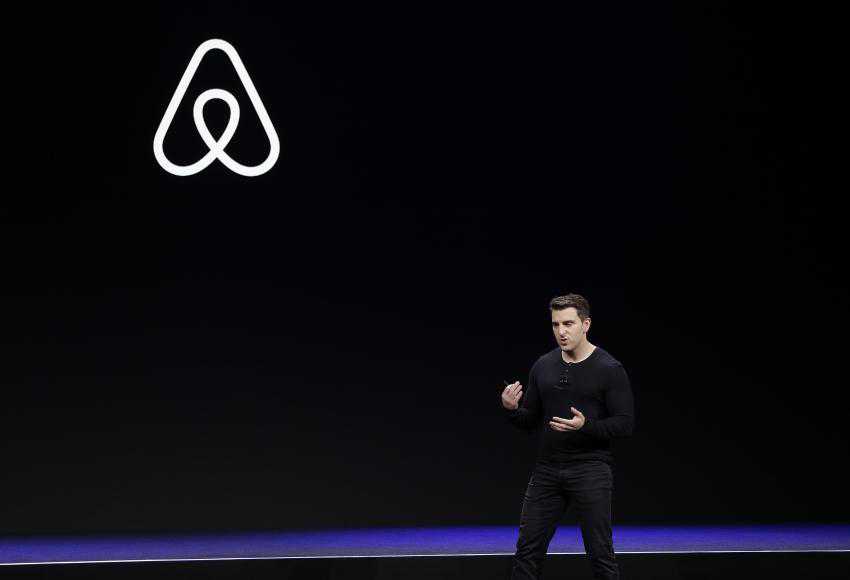Uber lays off 3,700 as virus upends sharing economy
08 May, 2020

In a world where in fact the coronavirus pandemic has turned social distancing right into a new way of life, companies whose business models bank on people's willingness to talk about their personal space are actually struggling.
Uber said Wednesday it's cutting 3,700 full-time workers, or around 14% of its workforce, as persons fearful of infection either stay indoors or try to limit connection with others to minimize risk if they do go out. Rival Lyft and home-sharing service Airbnb have also announced cuts as a result of falling usage.
The layoffs and related costs like severance will definitely cost about $20 million for Uber, which had already imposed a hiring freeze. The San Francisco-based company has offered up to 14 days of financial assistance to drivers and delivery staff who were identified as having the COVID-19 disease, or put in quarantine.
Those ride-hailing drivers still on the road want to avoid infection and patch together enough fares to put dinner up for grabs even while ridership plummets.
“A lot of us you live on the razor’s edge of homelessness,” said Jerome Gage, 28, who drives for Uber's rival Lyft in LA. “We have to work or we don’t eat.”
Gage, who as a contract worker doesn't have paid sick leave or medical health insurance, has seen his income plummet as the number of rides he provided fell about 75%. He got one disposable mask and a few small bottles of sanitizer from Lyft, but said it's not enough to keep him safe.
“Any trip, you could contract the virus," Gage said. "So each day we’re on the highway we’re in harm’s way.”
Lyft announced last month it could lay off 982 people, or 17% of its workforce in the face of sinking ridership. The San Francisco company expects to spend $28 million to $36 million on expenses related to employee severance and benefit costs.
Lyft's income grew 23% to $955.7 million in the first quarter, which doesn't capture the entire extent of the outbreak. The quantity of active riders grew just 3%, the company said Wednesday. Lyft lost $398.1 million, that was better than the year-ago loss of $1.1 billion when the company had higher expenses linked to its IPO.
“As the COVID-19 pandemic poses a formidable challenge to our business, we are ready to weather this crisis,” said Logan Green, co-founder and CEO, in a statement. “We are giving an answer to the pandemic with an aggressive cost reduction plan which will give us a straight leaner expense structure and invite us to emerge stronger.”
Ride-hailing companies are facing pushback from drivers who wish to be classified as employees rather than independent contractors, which some say would speed the procedure to getting unemployment benefits. California sued Uber and Lyft on Tuesday, alleging they misclassified their drivers as independent contractors beneath the state’s new labor law.
Both Uber and Lyft are trying to conserve cash so they can weather the pandemic’s fallout, in part by emphasizing deliveries of food and other goods. Lyft, which before touted its singular concentrate on transportation, started a momentary service called “Essential Deliveries” last month to provide goods such as for example groceries to food banks and senior centers. Uber is expanding Eats, its restaurant delivery service, into 20 international markets this season.
However the success of their businesses is determined by people being ready to open up their cars, and drivers in some parts of the country can make more money collecting unemployment benefits, said Stephen Beck, managing partner of cg42,a management consulting firm.
The psychology of riders' decision-making is also shifting. Ride-hailing companies were banking on persons deciding they might rather hitch a ride than own an automobile, a belief which has changed for some consumers through the pandemic. Riders will be making decisions about what's safest, and would need to trust a shared vehicle less risky when compared to a bus or train.
Even in its worst-case scenario -- an 80% decline in ridership through 2020 -- Uber has said it could end the entire year with $4 billion in cash. That could still mean burning through almost $7 billion this year, which could create problems for Uber’s larger ambitions such as self-driving cars and air taxis.
Airbnb is slashing staff as the idea of opening living spaces to strangers begins to feel just like an anachronism.
On Tuesday, the company announced it was cutting 25 % of its workforce, some 1,900 people. The San Francisco-based company expects its income to drop by more than half this year.
It was not long ago that Airbnb was poised to profit from a soaring currency markets with its highly anticipated public offering. But with the marketplace now reeling and few persons looking to anywhere but home, Airbnb is reportedly accumulating millions of dollars in losses.
When consumers eventually resume traveling, Airbnb CEO Brian Chesky anticipates they will spend less and stay nearer to home. Earlier this year, following the company told guests they could cancel their stays without penalties, it decided to pay furious hosts $250 million to make up for a few of their lost income.
Source: japantoday.com
TAG(s):
